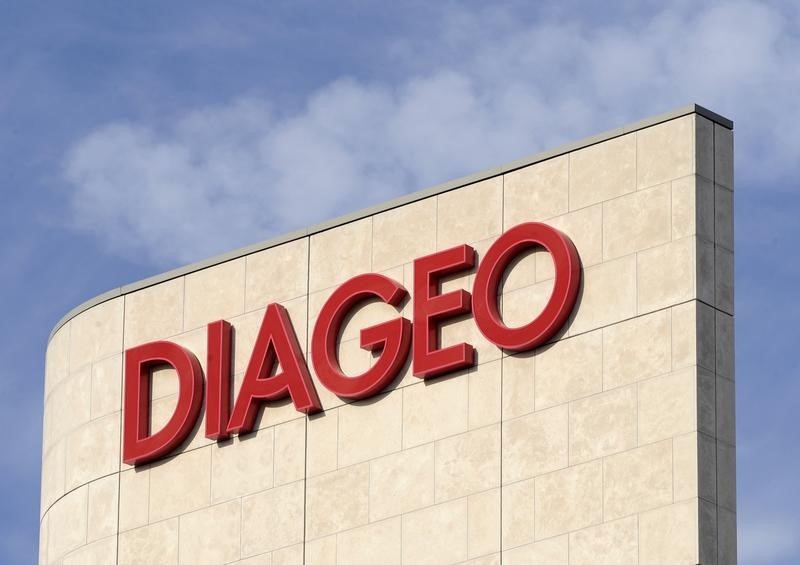EXCLUSIVE: Channel 4’s top executives have indefinitely deferred their six-figure loyalty bonuses amid a revolt from producers, who have voiced dismay at the British broadcaster pleading poverty as senior leaders pocket record pay packets.
Deadline can reveal that Channel 4 CEO Alex Mahon and her two top lieutenants, content chief Ian Katz and commercial head Jonathan Allan, will forgo bonuses of more than £100,000 ($124,000) until the company has navigated its way through a chastening ad market slump.
The so-called “retention bonus” was introduced to stop rank-and-file staff fleeing Channel 4 as the government attempted to sell the crown jewel of UK broadcasting. The reward was extended to executive directors last September, meaning their salary would have been topped up by 25% in addition to any performance-related pay.
A Channel 4 spokeswoman confirmed the deferral “as part of a wider response to a very difficult ad market.” It is understood that Mahon, Katz, and Allan also declined a pay rise earlier this year. Their 2022 pay will be confirmed in Channel 4’s annual report later this summer, with The Guardian reporting that Mahon was on course to pocket up to £1.4M, making her the highest-paid CEO in the network’s history.
The trio made a decision in the past couple of weeks to delay their retention bonus, which was due to be paid this month. Deadline understands that they felt it was the right thing to do as they pass financial pain onto producers, who have blasted the salaries as “outrageous” in the current climate.
“It’s another slap in the face for the indie community,” was how one production chief described the situation prior to the bonus deferral. Sources said Channel 4 staff have also raised concerns about the pay packets during tense internal discussions.
Deadline has spoken to more than a dozen influential producers and freelancers in recent days to piece together a picture of how Channel 4 is responding to a rocky period just months after it emerged from a battle over its ownership model. All spoke on the condition of anonymity for fear of losing business.
Several sources claimed that Channel 4 had overspent on content after failing to forecast the ad market plummeting by as much as 20% in the second quarter of 2023. Channel 4 is not the only broadcaster feeling the financial pinch, but the company stands accused of failing to be transparent about its issues and introducing an unofficial commissioning moratorium.
Producers complained that Channel 4 has canceled shows at the eleventh hour, asked suppliers to finance productions at short notice, tasked them with rethinking budgets mid-shoot, and pushed projects into 2024 because it can’t afford to pick up the bill. Several indie bosses said they are not currently prioritizing Channel 4 developments. “None of us can work out why Channel 4 wasn’t more prepared,” one said.
Channel 4 insiders said they recognized that producers are suffering, but there is optimism that the pain will be short-lived and that the broadcaster’s content budget will be in line with last year’s record spend of £700M. A spokeswoman said producers are the “beating heart” of Channel 4’s business and the decisions being taken now underscore its commitment to financial sustainability.
Cancelations Pile Up
Deadline can reveal that Channel 4 has canceled four shows that were on the brink of production as it looks to slash costs. We were the first to report on the demise of reality show Four Weddings, which blindsided producers at ITV Studios division MultiStory Media less than two weeks ago.
Freelancers described a scenario in which they came into work expecting to begin casting before being informed the show wasn’t happening. After some discussion, they were handed a two-week compensation package.
‘Four Weddings’
“It is shocking, in this day and age, that a broadcaster can greenlight Four Weddings and other productions, get into it, and then realize that they’ve run out of money,” said a source close to the show. Another said Channel 4 was exacerbating what broadcasting union Bectu has described as an “emergency” in unscripted TV, which means freelancers could abandon the industry.
A Channel 4 source said projects canceled in the early stages of production had not been formally greenlit, even though it is standard industry practice for producers to set up shows before contracts have been rubber-stamped. This person added that other shows are being “phased” into 2024 because Channel 4 is well-stocked with programming this year.
Cash Flow Crunch
Another major concern that has emerged in recent weeks is Channel 4 asking producers to cash flow shows with little warning.
One person bemoaned receiving a financing request just weeks before production, while another said Channel 4 was asking some producers to shoulder filming costs after cameras had begun rolling. “I’ve never known this in 25 years of working in TV,” said a highly-regarded unscripted producer.

Channel 4’s headquarters
Producers said it was the timing of Channel 4’s requests that had caused alarm. There is a long-established UK principle of production companies cash-flowing shows, but it requires preparation and planning.
John McVay, CEO of producer trade body Pact, said: “It’s unreasonable. Channel 4 should be talking about this way upfront so that everyone knows what they have to do and it’s not an additional burden.
“If Channel 4 wants to ease its cash flow problems then that’s fine, just come out and talk about it sensibly. This last-minute kick-bollocks-scramble is not good for anyone, including them, their reputation, and their relationships.”
McVay said he warned Channel 4 about the cash flow issue around two months ago and intends to raise it again during an upcoming meeting with Mahon and Katz, Channel 4’s Chief Content Officer.
Katz frustrated producers at a recent industry event, during which he was accused of painting a rosier picture than the one being described to suppliers behind closed doors. Others noted that Channel 4 has long been grappling with declining budgets and rampant inflation, but alternative content financing options, such as ad-funded programming, are not proving as effective as they once were.
Sources questioned why Channel 4 doesn’t break the glass on its £75M revolving credit facility instead of asking producers to solve its cash flow issues. A Channel 4 insider said the facility was not needed because the ad downturn is a short-term issue. Others said it is politically awkward for Channel 4 to dip into the credit pot, given it vigorously defended its financial sustainability during the privatization debate. The broadcaster’s revenues crossed the £1B mark for the first time in 2021.
There is a feeling that Channel 4’s financial issues have been compounded by heavy spending on sport, including England football matches, and big programming bets like Rise and Fall, an 18-part social experiment from The Traitors producer Studio Lambert.
Katz was said to be 50/50 about whether Rise and Fall would be renewed soon after it transmitted, but there is a growing sense that it will be difficult for the show to return given it was expensive to produce and fell well short of The Traitors. Sources close to Rise and Fall said mistakes were made in production, including filming it on a fast-turnaround basis.

Studio Lambert’s ‘Rise And Fall’ has become emblematic of Channel 4’s struggles
Channel 4
Despite Rise and Fall becoming emblematic of some of Channel 4’s problems, insiders are upbeat about the network’s creative health, not least because of its best haul of BAFTAs in 22 years, including Kate Winslet’s I Am Ruth. Other risky commissions are more likely to be renewed, including Tempting Fortune, hosted by Top Gear’s Paddy McGuinness, and The Piano, which is locking down its presenting team for a second season.
There is fevered speculation about how long Channel 4’s sticky patch will last and whether Mahon still has the appetite to remain in charge. Some predict that her swansong could be chairing September’s prestigious Royal Television Society Cambridge Convention. Many producers are yearning for a period of stability. “Channel 4 is simply too important not to be managed properly,” said one.
A Channel 4 spokeswoman said: “Channel 4 cares deeply about the indie community and our wider supply chain of freelancers. They are the beating heart of our business. While we recognise the actions we are asking of some are causing some short-term pain, the plan we have in place underscores our ongoing commitment to our financial sustainability and our continued support of the UK’s independent production sector.”
















